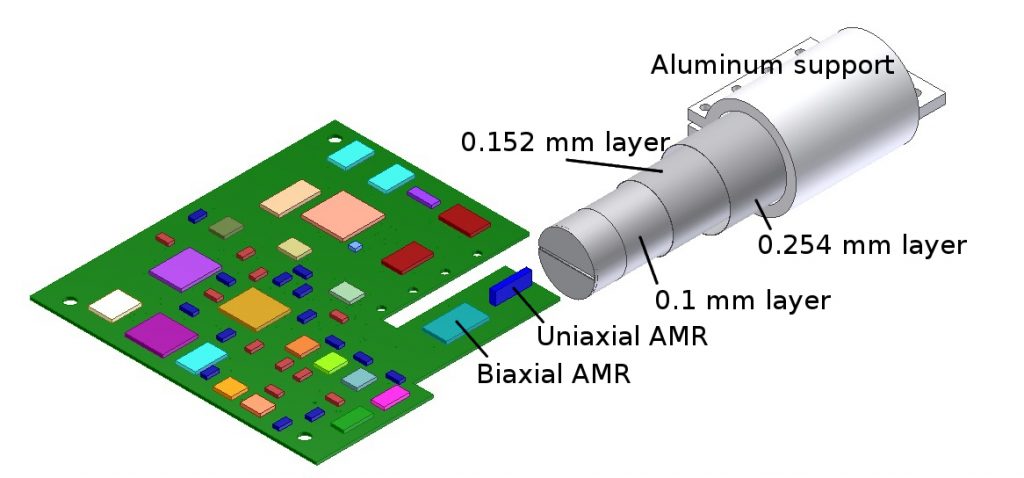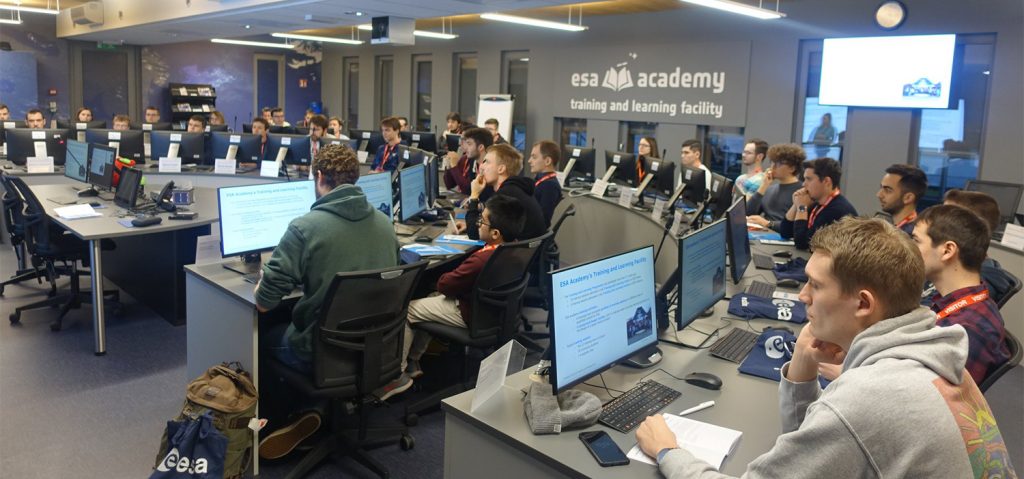ESA selects the ‘UCAnFly’ project in the first phase for the launching of a nanosatellite into space 17 January 2019
The objective of the nanosatellite is to test technology for the measurement of magnetic fields in space. This is especially useful in space missions of fundamental, solar and planetary physics
The European Space Agency (ESA), in order to provide launching opportunities for nanosatellites, has launched a space program in close collaboration with European universities. Within a highly competitive call, eight students of the Higher School of Engineering of the University of Cádiz, led by the postdoctoral researcher Ignacio Mateos Martín, have presented the UCAnFly project, an initiative that has been selected within the first phase of the Fly Your Satellite program (FYS).
The students that have participated in this proposal are David Aragón, Ramón Ruíz, Francisco León, Javier Racero, Carlos Díaz, Ernesto Romance, Alejandro Laradona and José Luis Aparicio. The latter has been the student selected to participate in an engineering workshop at the headquarters of the European Space Agency (Belgium), in order to improve the initially accepted projects. UCAnFly aims to test technology for the measurement of magnetic fields in space, which is especially useful in space missions of fundamental, solar and planetary physics. During the workshop, he will have the opportunity to present the initiative to other teams of European universities and experts in the field, in addition to receiving additional lectures to become familiar with the FYS of ESA. After four sessions, they will elaborate a final design that they will have to present and defend before the experts of the European Space Agency.

In the event that the initiative of the University of Cádiz managed to successfully pass the second phase, this would be the first Andalusian satellite launched into space. In the project, also collaborates the group of Gravitational Astronomy (CSIC-IEEC) and members of UCA of the group of Applied Robotics, the group of Magnetism and Applied Optics, as well as the departments of Mechanical Engineering and Industrial Design, Engineering in Automation, Electronics, Architecture and Computer Networks and Applied Physics.


